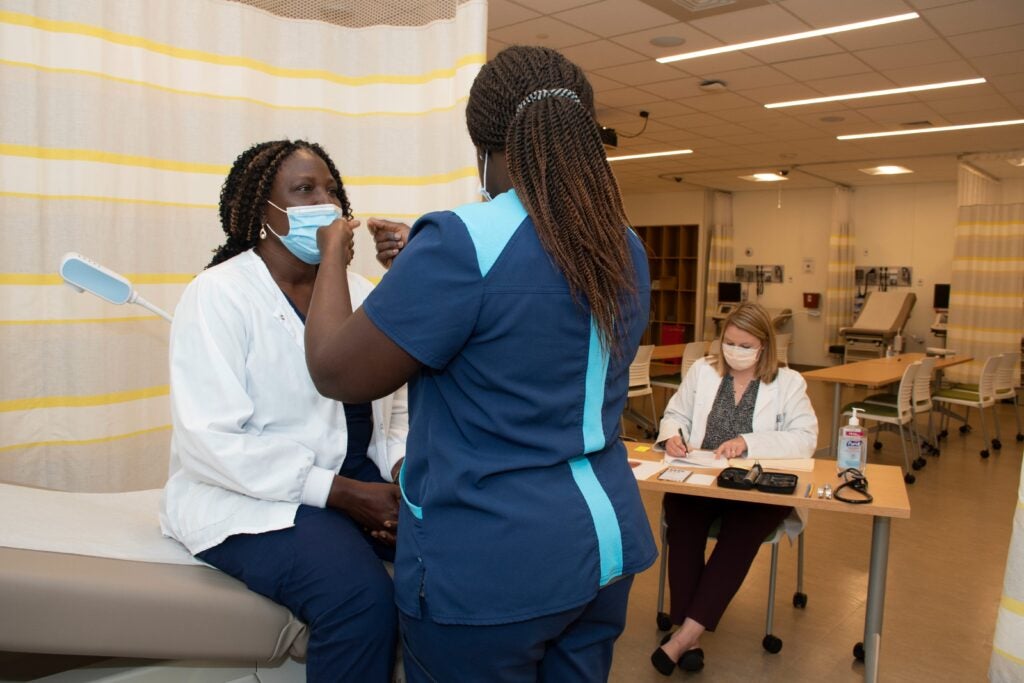What does a nurse do?
“21st Century nursing is the glue that holds a patient’s healthcare journey together. Across the entire patient experience, and wherever there is someone in need of care, nurses work tirelessly to identify and protect the needs of the individual” (American Nursing Association).
Nurses have a variety of duties and are responsible for delivering an array of healthcare services. These include coordinating and providing patient care, performing physical exams and taking health histories, and offering counseling and education to a patient and their family.
Nursing fact sheet
Meet your Career Education Specialist
To explore Nursing as a career, review our Health Career Cluster page and make an appointment with the Nursing Career Education Specialist.
Choosing This Field
When figuring out if this profession is right for you, make sure to look at various resources to inform you about careers in nursing, engage in self reflection regularly, and seek out relevant clinical and service experiences.
Nursing at URI as a closed major, meaning there isn’t an opportunity to transfer into the major (unless admitted into Nursing in students’ first year). For students interested in still pursuing Nursing as a career, we suggest exploring Accelerated Bachelor of Science in Nursing (ABSN) programs.
ABSN programs provide an accelerated pathway to become a Registered Nurse (RN) for applicants that have completed a Bachelor’s degree in any discipline other than Nursing. URI does not have an ABSN program, but the closest to us is Johnson & Wales University in Providence.
In order to apply for ABSN programs, students normally must complete a series of prerequisite courses. The most common requirements for the majority of ABSN programs include:
- Human Anatomy & Physiology I and II (with labs)
- Microbiology (with lab)
- Chemistry – often General Chemistry or Organic/Biochemistry (with labs)
- Nutrition
- Statistics – usually covering basic probability and inferential statistics
- Developmental Psychology or Lifespan Psychology
These can vary – we recommend exploring each ABSN program and review their websites for their prerequisite requirements.
What is the path to becoming a Nurse Practitioner (NP)?
A certified Nurse Practitioner (NP) is one type of Advanced Practice Registered Nurse (APRN). Other APRN’s include certified nurse mid-wife (CNM), certified nurse-anesthetist (CRNA), and a Clinical Nurse Specialist (CNS). APRNs do the same initial education and licensing required for RNs and then continue on to obtain at least a Master’s degree.
To learn more about the difference between the two, visit the AACN’s page What is Nursing?.
There are a small number of direct-entry Master’s (MSN) or Doctorate level (DNP) Nursing programs that allow students to become Registered Nurses (RNs) early in the program, and then continue into graduate-level coursework for an MSN or DNP.
Finding a Program
To find participating schools with nursing programs, use the NursingCAS Participating Program Directory. You can also explore the AACN Member Program Directory.
Find Out More About Nursing as a Career
To explore Nursing as a career, review our Health Career Cluster page and make an appointment with the Nursing Career Education Specialist.
